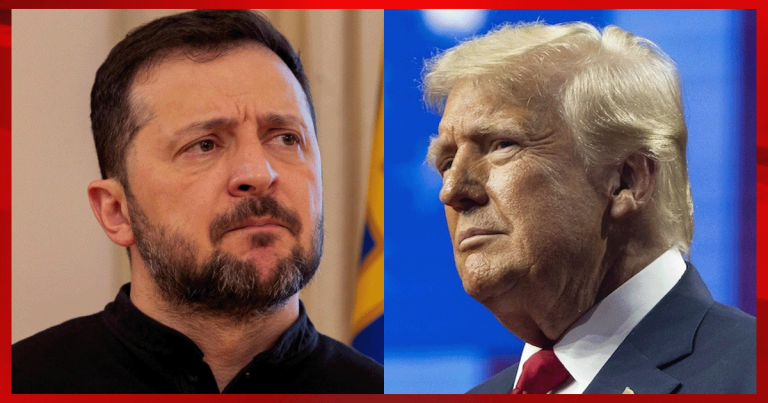
The international situation has reached a critical turning point for American taxpayers. With hundreds of billions flowing overseas and minimal oversight of spending, serious questions are emerging about whether foreign conflicts are depleting America’s resources while delivering questionable returns on investment.
History has shown that strong leadership and direct negotiation achieve more than endless financial support. When America takes decisive action rather than writing blank checks, positive results typically follow – a lesson that seems particularly relevant as the Ukraine conflict enters its fourth year.
President Donald Trump delivered a sharp assessment of Ukrainian President Volodymyr Zelenskyy’s leadership on February 19, following breakthrough peace talks between U.S. and Russian officials in Saudi Arabia.
The comments coincided with Trump’s special envoy Keith Kellogg arriving in Kyiv to discuss potential paths forward to end the costly conflict.
From ‘The Post Millennial’:
President Donald Trump on Wednesday said that he believes Ukrainian Volodymyr Zelenskyy to be a “dictator” over his refusal to hold elections…
“Think of it, a modestly successful comedian, Volodymyr Zelenskyy, talked the United States of America into spending $350 Billion Dollars, to go into a War that couldn’t be won, that never had to start, but a War that he, without the US and ‘TRUMP,’ will never be able to settle,” Trump said.
The President went further, calling Zelenskyy a “dictator without elections” and warning that he “better move fast or he is not going to have a Country left.”
These statements followed the February 18 Russia-United States talks in Saudi Arabia, where significant progress was made toward ending the conflict.
Peace Talks Show Real Progress
Secretary of State Marco Rubio’s meeting with Russian Foreign Minister Sergey Lavrov marked a decisive shift in diplomatic strategy.
Russian President Vladimir Putin specifically praised the outcome, expressing optimism about restored Russia-U.S. relations and signaling readiness for direct dialogue with the Trump administration.
Ukraine’s absence from these talks has sparked debate but appears to be yielding results.
Russian officials have outlined specific conditions for peace, including the requirement for fresh elections in Ukraine – a democratic principle that Zelenskyy has repeatedly refused to honor since his term expired in May 2024.
The Real Cost to American Taxpayers
While Zelenskyy dismisses Trump’s statements as “disinformation,” the financial burden on American taxpayers demands scrutiny.
According to the Kiel Institute for the World Economy’s February 2025 report, U.S. commitments total approximately $119 billion – a staggering sum that requires strict accountability measures.
European contributions, while reaching $278 billion collectively, are spread across multiple nations and often come with less stringent oversight. This imbalance underscores the need for European powers to take greater responsibility, especially given their geographical proximity to the conflict.
International Response and American Leadership
German Chancellor Olaf Scholz called Trump’s remarks “simply wrong and dangerous” on February 19, while other European leaders expressed similar concerns.
However, these same leaders have failed to achieve peace despite years of traditional diplomatic efforts.
Trump’s special envoy Kellogg’s arrival in Kyiv demonstrates the administration’s commitment to achieving concrete results. His mission, as stated to reporters, focuses on listening and reporting back to Trump – a practical approach that contrasts sharply with years of ineffective European-led negotiations.
Key Takeaways:
- President Trump’s direct negotiation strategy has achieved more progress toward peace in weeks than years of failed diplomatic efforts.
- Trump called President Zelensky a “dictator” for refusing elections for years.
- The path to peace requires honest dialogue about leadership and democracy, even when the truth is uncomfortable.
Sources: The Post Millennial, PBS News, ABC News